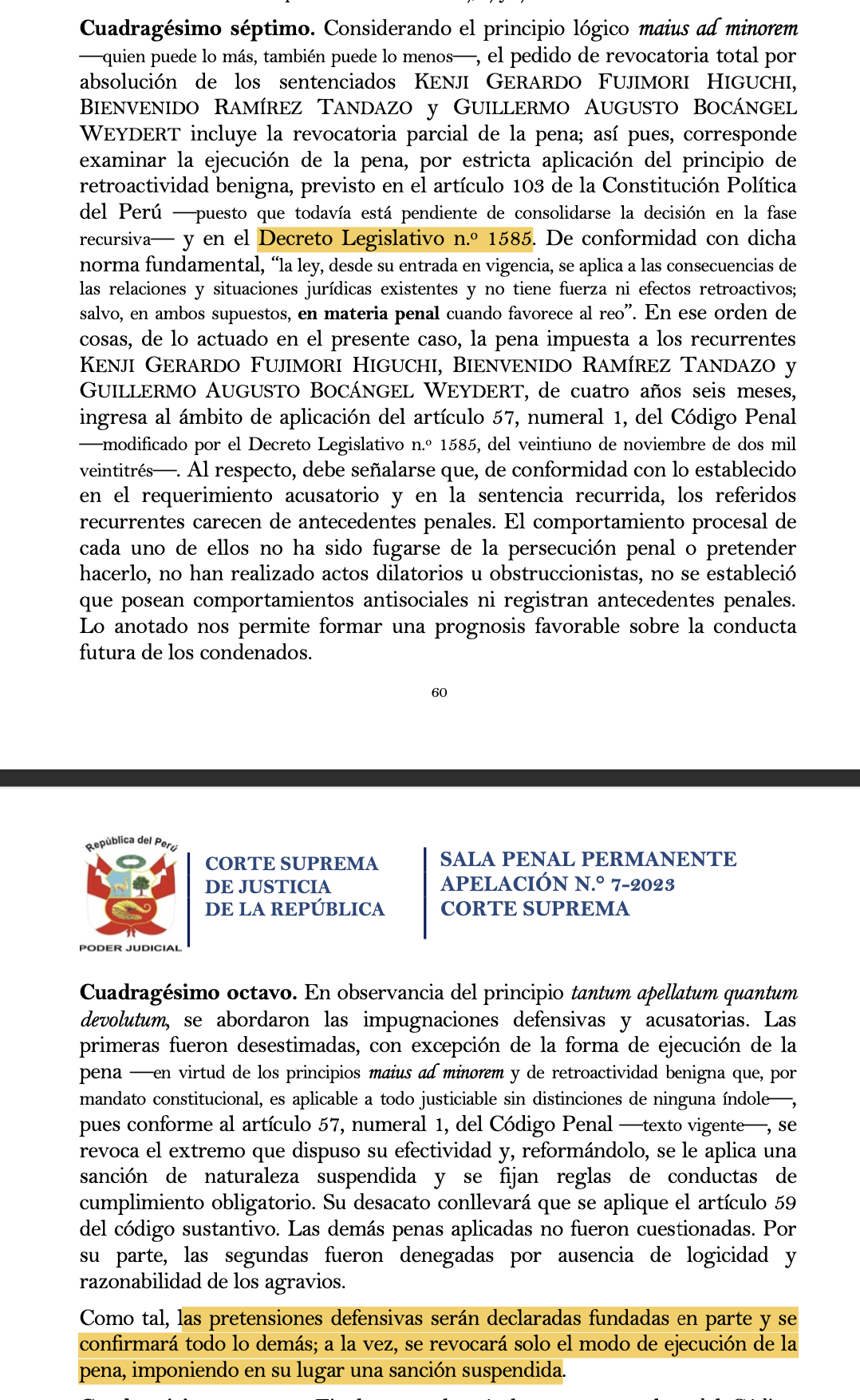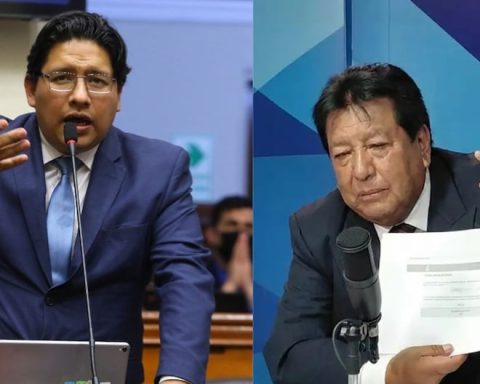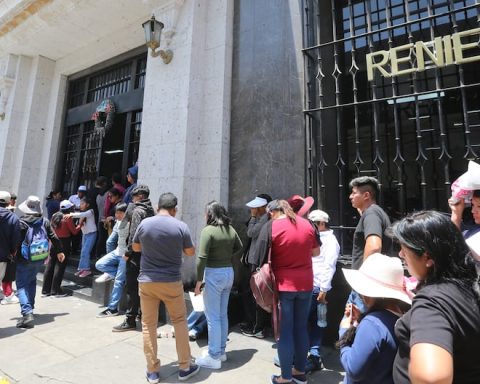Recently, the senior prosecutor and national coordinator of the Specialized Prosecutors against Organized Crime, Jorge Chavez Cotrinaprotested the public’s perception that judges and prosecutors release criminals. He said something very true, that Government and the Congress They give contradictory laws to fight crime, which end up favoring the accused.
Chavez Cotrina specifically targeted the Legislative Decree 1585 November 2023, issued by the Government of Dina Boluarte. This standard modified the Penal Code so that sentences of up to 5 years can be suspended, even up to 8 years exceptionally. The articles related to the conversion of the sentence and preventive detention were also changed. All these reforms are under the justification of unpacking the prisons, instead of building more.
One of the first beneficiaries of this Legislative Decree was Kenji Fujimori in the case Mamanivideos. He was sentenced in the first instance to 4 years and 6 months of effective prison. All that was missing was the ratification of the conviction for the former congressman to be placed in a public prison. However, the rule came into force, so, although the Supreme Court confirmed the sentence, ordered that the sentence be suspended.
Most favored
Although he Legislative Decree 1585 It was published in November 2023, due to the principle of benign retroactivity, it applies to crimes committed even before the promulgation.
The Supreme Court has also applied it, as it was able to detect The Republic after a review of the resolutions issued since that date.
There are at least 4 cases in which the sentences of people convicted of aggravated robbery and one case for attempted heistthe most common crimes on a daily basis.
For example, a subject who beat and then robbed a person who had been injured by a gunshot was sentenced to 8 years in effective prison. However, the sentence was suspended because the assailant was under 25 years of age at the time of the crime and it was his first crime.
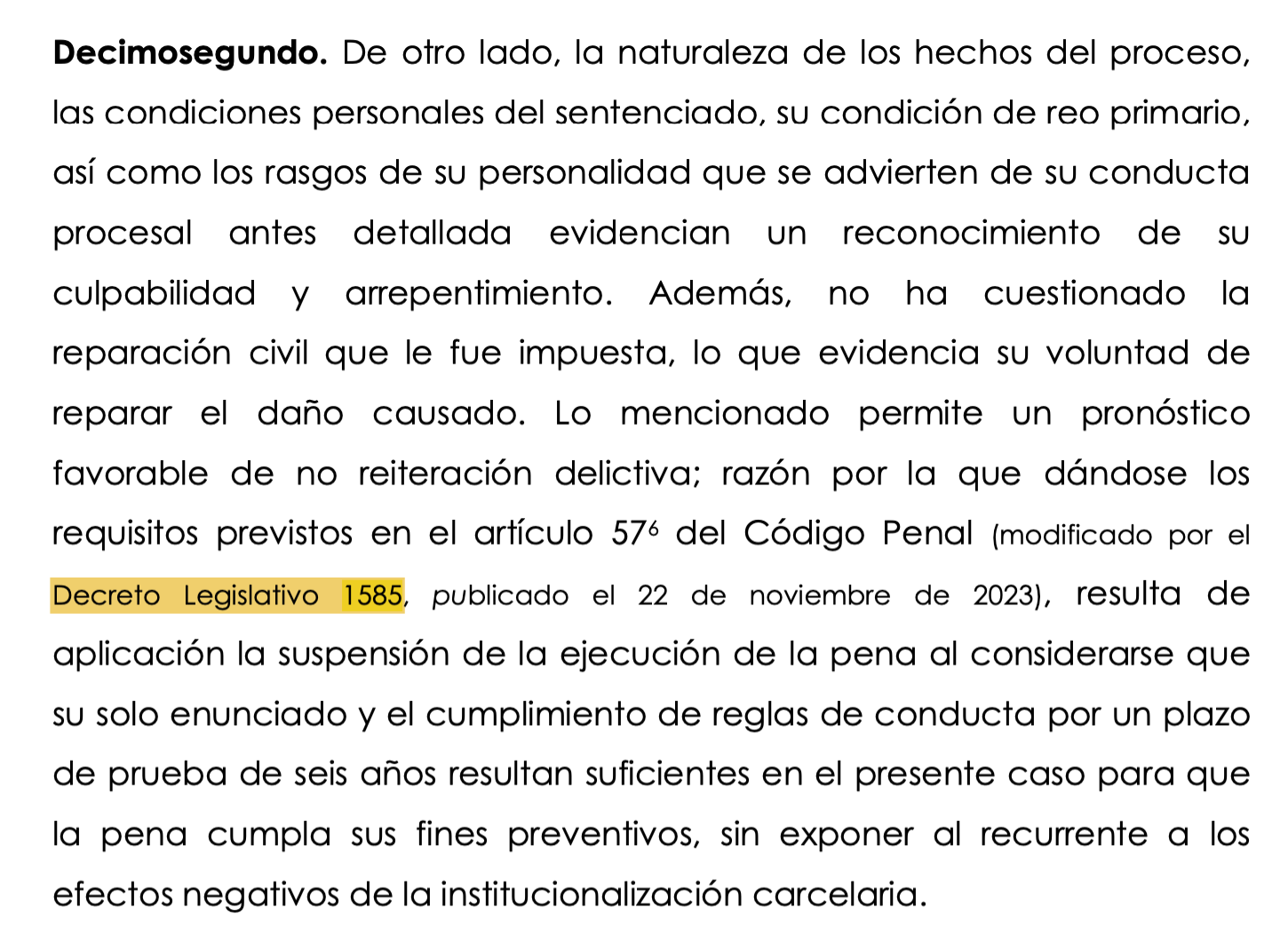
These last two cases to prevent a convicted person from going to prison were introduced with the Legislative Decree 1585.
In another case, a subject held a minor for a few minutes near her home to steal her belongings, which could not be achieved due to the intervention of local residents. The man was given 5 years in prison, which was suspended due to the rule in question.
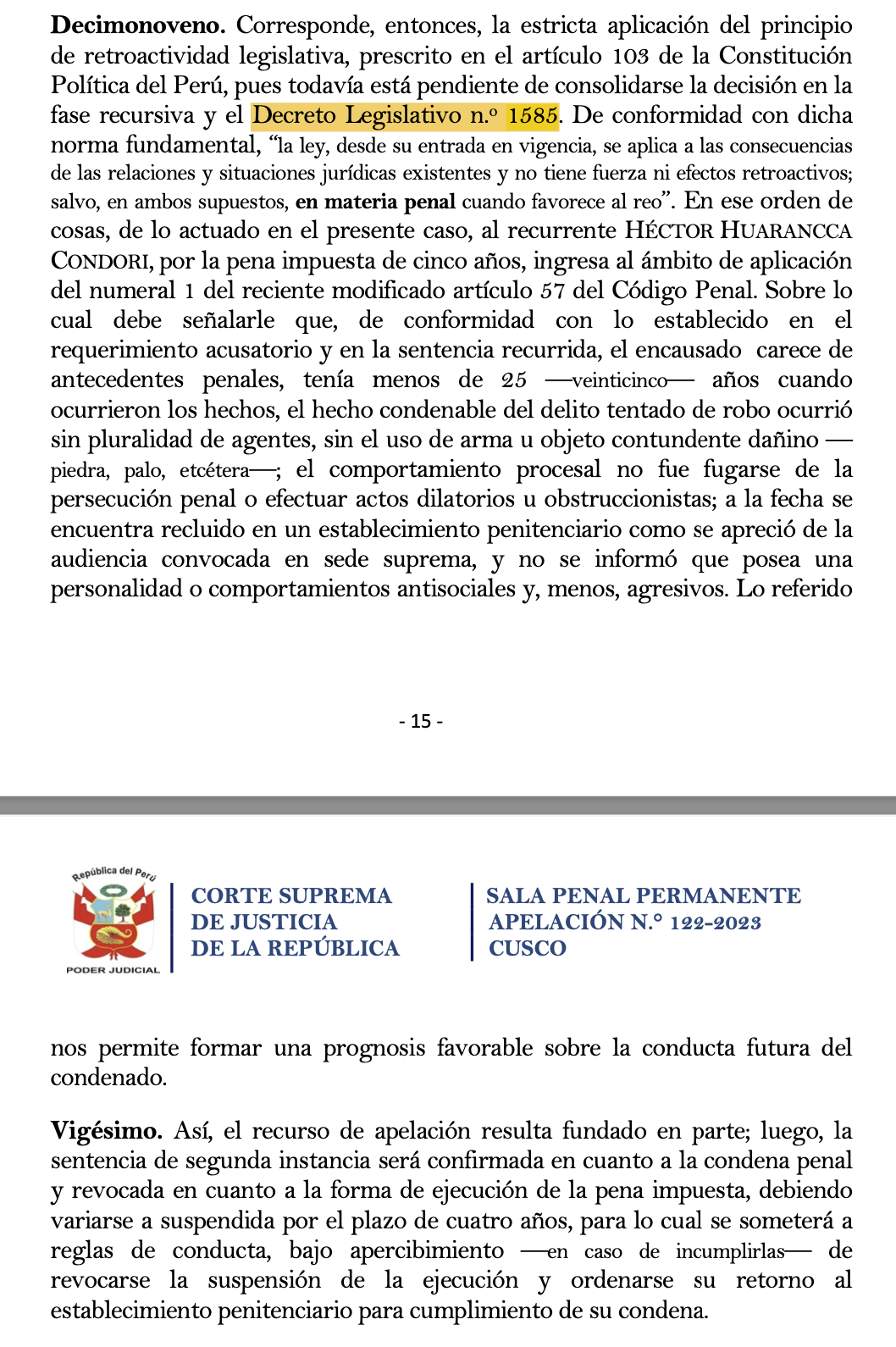
On the other hand, a driver who ran over a police inspector Municipality of Lima in the Central Market and who fled, he was sentenced to 5 years in prison, but the Supreme Court He had to convert said sentence into days of community service due to the aforementioned legislative decree.
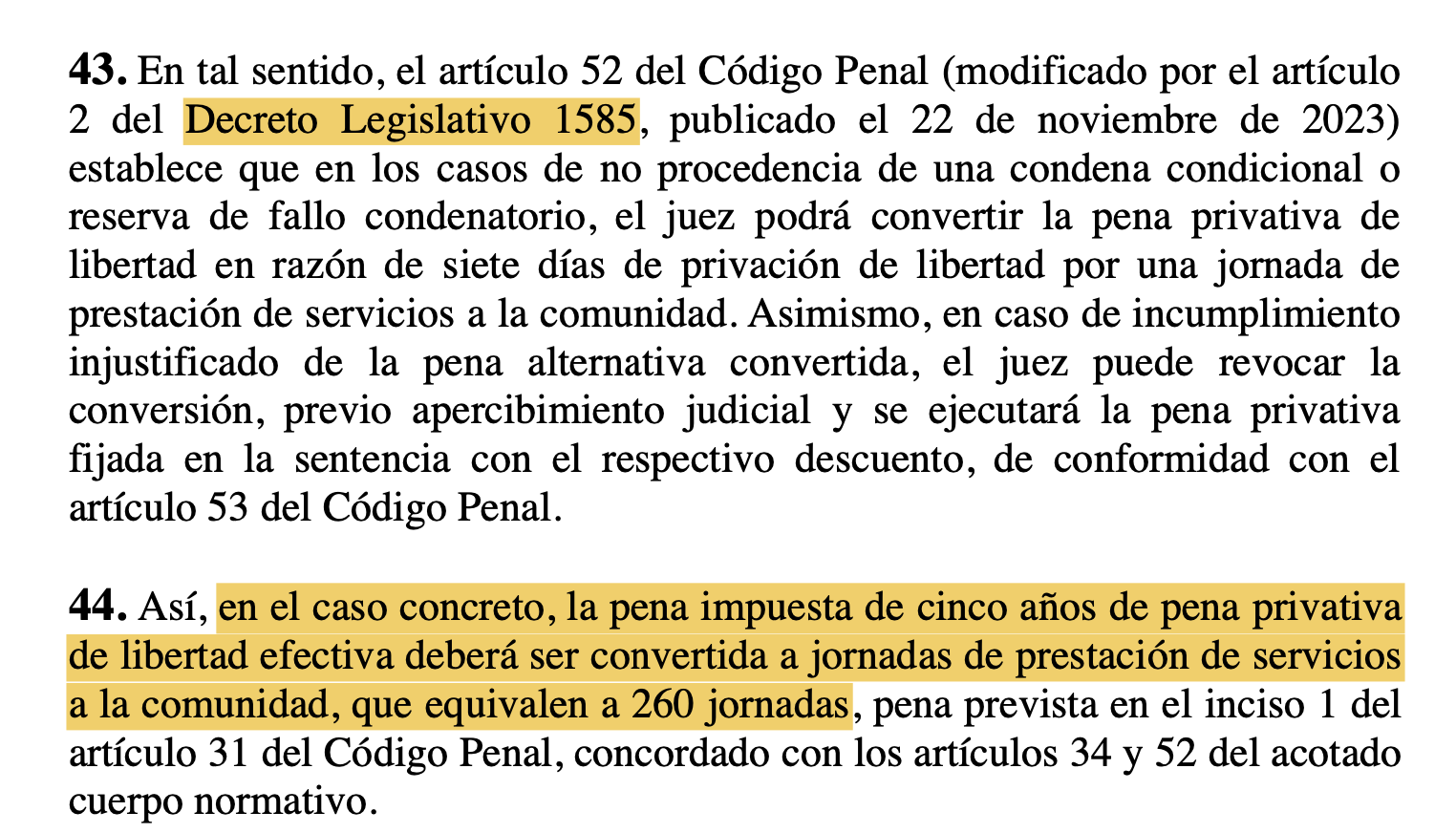
This newspaper also identified a case in which a woman convicted of extortion benefited from the aforementioned norm. The convicted woman withdrew the money that a father deposited in her account after she was led to believe that her son was detained. The woman was in prison serving a 5-year sentence, but the Supreme Court He converted the remaining time into days of community service.
Those convicted of corruption also found in the Legislative Decree 1585 a lifeline to avoid going to a prison. People to whom Judiciary found guilty for collusion, peculation, incompatible negotiation and bribery They saw their sentences of between 4 and 5 years in prison turned into days of community service.
Condemned for illicit drug traffickingin their forms of favoring or possession, also avoided going to prison for the Legislative Decree 1585.
Two attempted rapes of minors go unpunished
- To the Supreme Court there were two cases of attempted sexual rape against minors under 13 years of age.
- The accused would have had to serve 5 years of effective prison. However, since the Legislative Decree 1585 and being more favorable to the accused, custodial sentences 5 years they became 260 days of community service.
- To the Supreme An appeal for annulment also arrived from a person convicted of acts against indecency against a minor under 4 years of age.
- The supreme judges determined that the subject received 5 years of effective imprisonment. By DL 1585 the sentence was suspended.
These are only the cases that have reached the Supreme Court. In Superior Courts the number of those favored by DL 1585 could be much higher.
